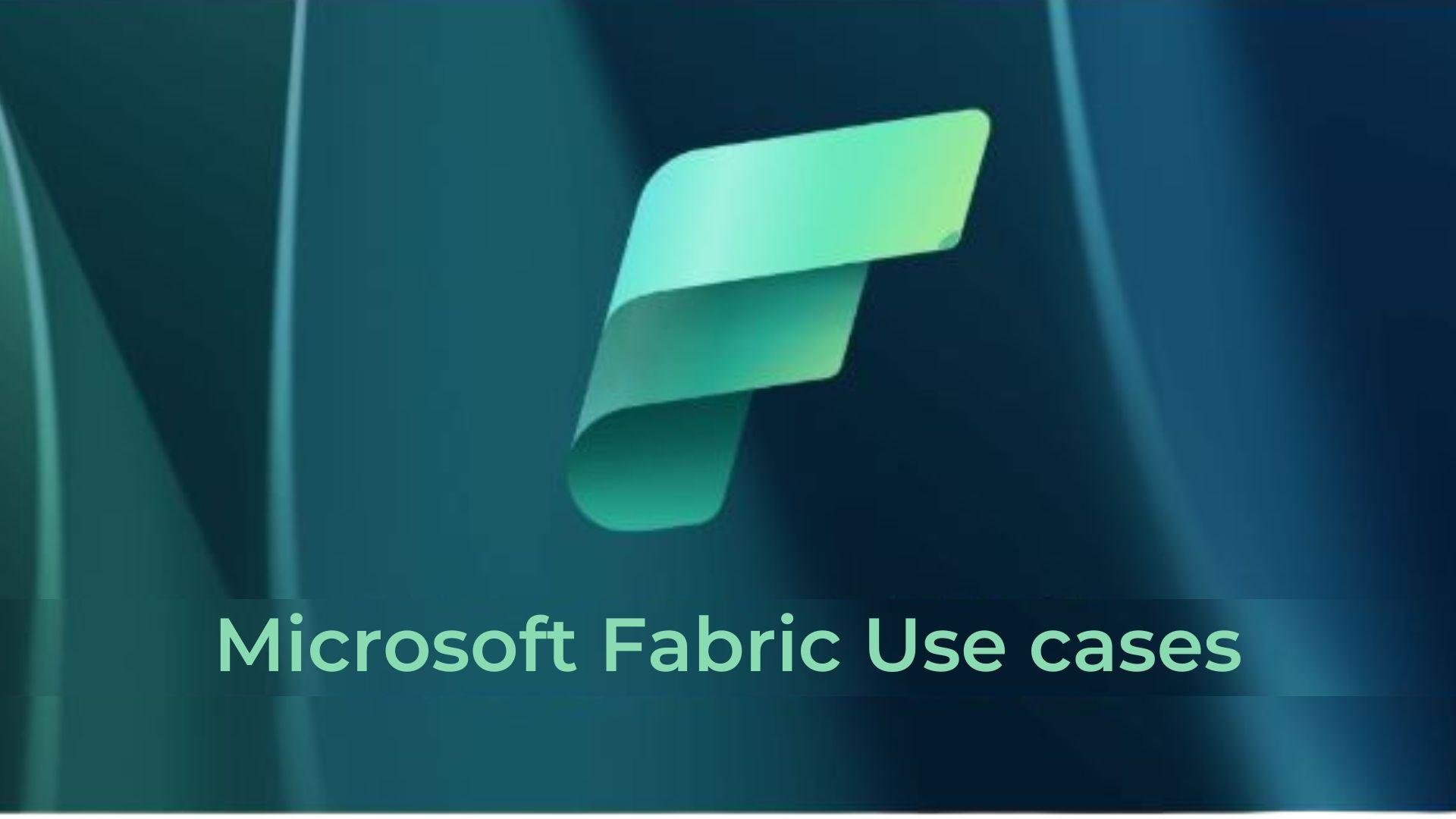Microsoft Fabric Use Cases in Real-World: Transforming Data Analytics & Business Intelligence

In the typical data to insights journey, businesses use several tools and platforms for different tasks, such as data orchestration, Data transformation, analysis, visualization, storage, etc. Managing these tools for data processes can be complex, costly, and resource intensive. Microsoft Fabric revolutionizes the data journey by offering a unified, end-to-end analytics platform that consolidates data migration, storage, processing, and visualization within a single ecosystem.
This blog will discuss the need for unification, Microsoft's approach to creating a unified platform, some essential Microsoft Fabric use cases, and how they simplify business operations.
Need for a Unified Data Platform – Microsoft Fabric
Traditional data environments often consist of multiple systems and tools for executing each workload. From extraction and storage to processing and implementation, each workload often requires separate tools and follows a separate billing process that leads to data fragments and data silos.
Microsoft Fabric serves as a unified approach by integrating capabilities from platforms like Azure Synapse and Data Factory into a Software-as-a-Service (SaaS) solution. It unifies machine learning, real-time analytics, data engineering, and business intelligence into one singular environment, making it ideal for businesses to access and work on data efficiently without having to switch between multiple tools.
Benefits of Using Microsoft Fabric
Unified Data Management—Microsoft Fabric consolidates everything in one place, including data lakes, warehouses, and analytics tools, into a single, streamlined platform.
Enhanced AI and Automation—Integrates AI-driven insights, predictive analytics, and automation to improve decision-making and give organizations more power over outcomes.
Robust Security and Compliance – It ensures data protection through encryption, role-based access, multi-factor authentication, Identity Management, and regulatory compliance features.
Scalability and Performance – It improves performance through optimized data processing with Direct Lake mode, in-memory caching, and intelligent workload management. The platform's integration with AI and automation further accelerates data insights while ensuring cost efficiency.
Microsoft Fabric Use Cases
Microsoft Fabric serves multiple business needs across different industries. Some of the Microsoft Fabric use cases include:
Enhances Enterprise Data Analytics—Organizations can use Microsoft Fabric to integrate diverse data sources into a single, easy-to-manage environment. By integrating structured and unstructured data for visualization and analysis, organizations will have more accessibility and consistency over their data, ensuring businesses make quick data-driven decisions to achieve impactful outcomes.
Helps with Real-Time Decision Making – Businesses rely on real time data to make informed decisions. Industries including finance, healthcare, and manufacturing seek instant insights to monitor key performance indicators, understand anomalies, and improvise operations without delays.
Microsoft Fabric helps businesses make real time decision making by providing unified data integration and analytics capabilities. It facilitates businesses to collect, process, and analyze real time data streams from various sources. Fabric uses advanced AI tools to detect anomalies and predict trends, essential for decision making. This seamless integration with Power BI further allows decision makers to visualize and act on critical data in real time.
Machine Learning and AI: Machine learning models in MS Fabric enable users to analyze large data sets automatically, identify patterns and predict future outcomes to help businesses make informed decisions. They combine data engineering, data science, and business intelligence tools to extract insights from complex data all under one unified platform. Furthermore, Microsoft Fabric integrates seamlessly with Azure AI services enabling business users to enrich data with prebuilt AI models without any prerequisite.
Enhanced Security and Data Governance – With the growth in data consumption and data sharing, security has become the highest priority for businesses. Microsoft Fabric implements robust data governance and security measures by providing built-in compliance policies, identity management, access controls, and encryption mechanisms to secure business-critical information. Microsoft Fabric also adheres to regulatory compliance with standards like GDPR, HIPAA, and ISO 27001.
With Azure Active Directly in place, it ensures only authorized personnel can access the data through Advanced role-based access control (RBAC) and identity management. Additional features like multi-factor authentication (MFA), data masking, and sensitivity labeling, enhancing security ensuring businesses maintain a protected, compliant, secure data environment.
Integration with business apps – Microsoft fabric integrates seamlessly with business applications by acting as a unified data platform that connects various enterprise data sources such as ERP, CRM, and other industry specific applications. Fabric allows organizations to ingest, transform, and analyze data from these LOB systems in real-time. Furthermore, it provides built-in connectors and APIs that allow businesses to integrate structured and unstructured data from applications such as Dynamics 365, SAP, ServiceNow, and third-party databases. This integration ensures that business intelligence, predictive analytics, and automation workflows are continuously fed with the latest data, enabling data-driven decision-making and operational efficiency.
Conclusion
Microsoft Fabric has redefined data analytics and business intelligence for organizations seeking to utilize data effectively. Its unified, AI-powered, scalable platform simplifies data management, provides enhanced insights, and helps organizations make impactful decisions.
These various Microsoft Fabric use cases help businesses improve efficiency and security and enhance decision-making while saving costs. Microsoft Fabric subscription helps businesses reap benefits and utilize multiple tools under one unified platform.
Whether you aim to simplify your data analytics processes or enhance your decision-making, Saxon.ai is here to guide you. Contact us today for Microsoft Fabric Consulting Services and explore how we can transform your data strategy.
- Art
- Causes
- Crafts
- Dance
- Drinks
- Film
- Fitness
- Food
- Игры
- Gardening
- Health
- Главная
- Literature
- Music
- Networking
- Другое
- Party
- Religion
- Shopping
- Sports
- Theater
- Wellness


